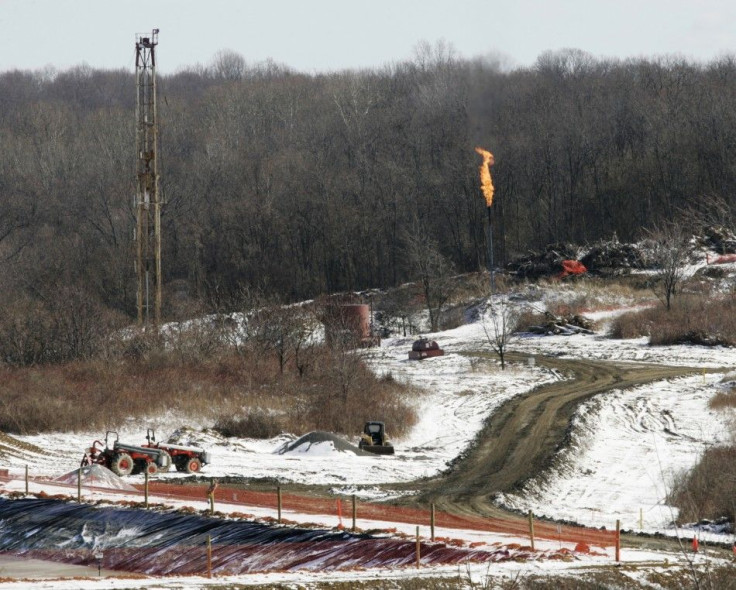Pennsylvania Democrats Launch Attack On State's Fracking Law

In a state where natural gas drilling has ignited a furious political debate, Democrats have launched an attack on the state's most recent law aimed at regulating hydraulic fracturing, the controversial practice known as fracking.
Six Pennsylvania representatives introduced bills that would revoke provisions of Act 13, which has been the subject of lawsuits and criticism from health care professionals and municipalities, and of a court-ordered injunction.
The act, which took effect in mid-April, instituted a 14-year state impact fee for natural gas drilling, and put in place standardized regulations which municipalities decried as a violation of their own zoning rights. It restricted unconventional wells, including hydraulic fracturing, to 500 feet from any pre-existing structure, but municipalities say their own zoning laws, which are sometimes more stringent, would be tossed away since the act replaces all other local laws previously enacted.
Now, the Marcellus Compact, a six-bill legislative package, authored by representatives Frank Dermody, Matt Bradford, Phyllis Mundy, Rick Mirabito, Steve Santarsiero and Mike Hanna, intends to give municipalities their zoning rights back, enact tougher environmental standards, ensure gas companies pay a fair impact fee for drilling in the state, and ensure a tax structure is in place to stimulate companies to hire local Pennsylvania workers.
We value the jobs and the money that Marcellus Shale promises to bring to many communities in Pennsylvania, Dermody said, referring to the rock formation containing vast amounts of shale gas and oil. But it's crucial that the drilling industry respects local zoning ordinances and is regulated so that the environment and neighbors are protected.
The compact will have a tough time passing the Republican-controlled House.
Steve Miskin, a spokesperson for the PA House Republicans, said the bills will not come for a vote, and that they represent state Democrat's own frustration at not being able to enact similar policy when they held a majority.
Among its provisions, the compact would establish a moratorium on the discharging of oil and gas flowback water into streams and rivers; create a tracking system for the storage, transportation and disposal of wastewater; would prohibit drilling from taking place in a flood plain; would make having an erosion and sediment control permit a requisite for oil and natural gas drilling; and would have the state's Department of Environmental Protection, Conservation and Natural Resources and the Fish and Boat and Game Commissions conduct a cumulative impact study of all anticipated oil and gas activities throughout the state.
Under the current Act 13, a well producing more than 90,000 cubic feet of gas per day could have to pay as much as $60,000 in fees during the first year, but see annual fees drop as low as $5,000 by the year 14.
Under the compact, companies would have to pay $75,000 per well and have their fees drop by $5,000 each year until year 14. From then on, companies would have to pay $10,000 a year per well.
These are simple measures that we can, and should, take to make sure our water resources are kept pure and clean and to ensure the safe disposal of hazardous chemicals, said Mundy.
The Pennsylvania Association of Independent Oil and Gas Producers did not return calls by publication time.
© Copyright IBTimes 2025. All rights reserved.





















